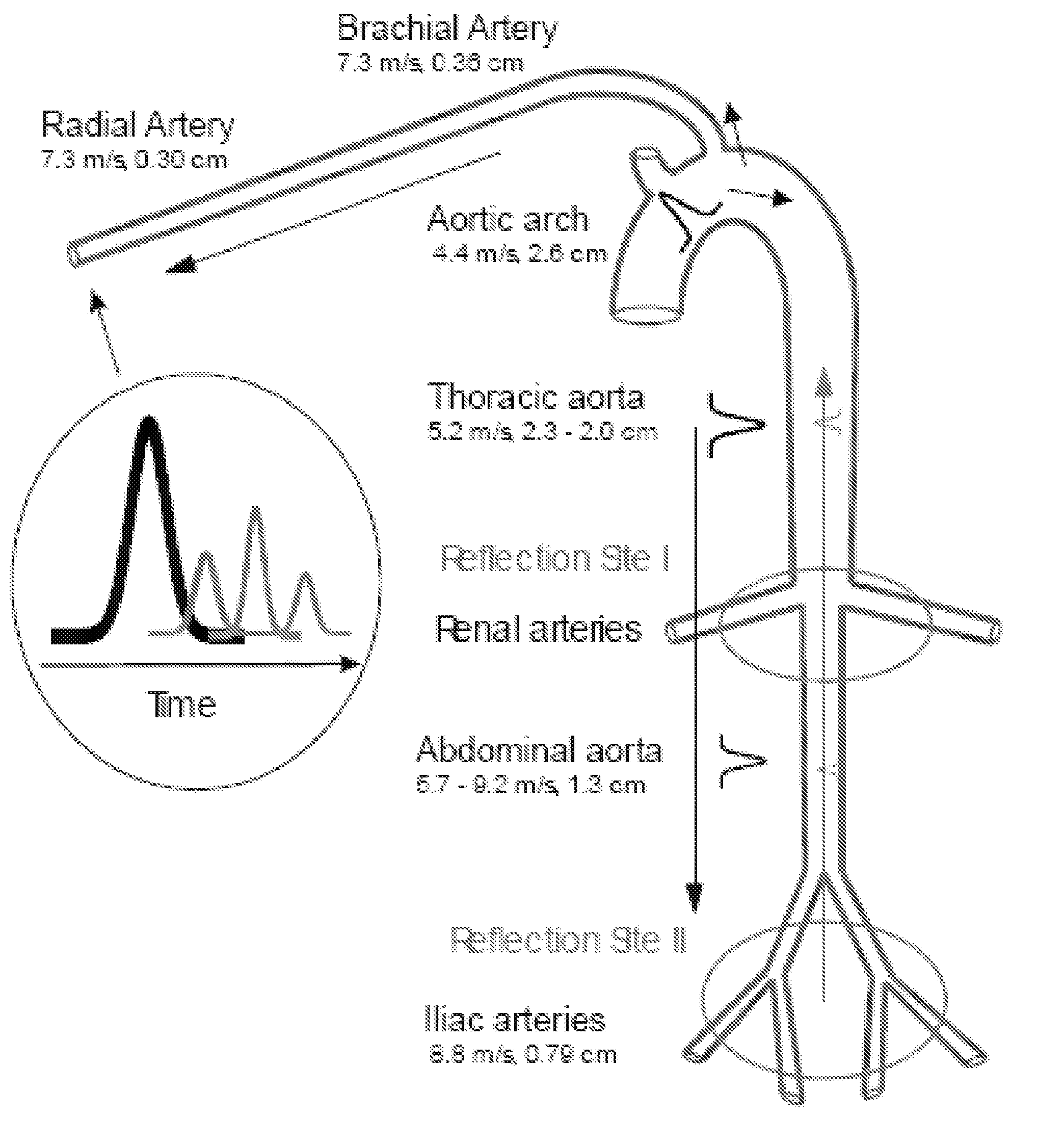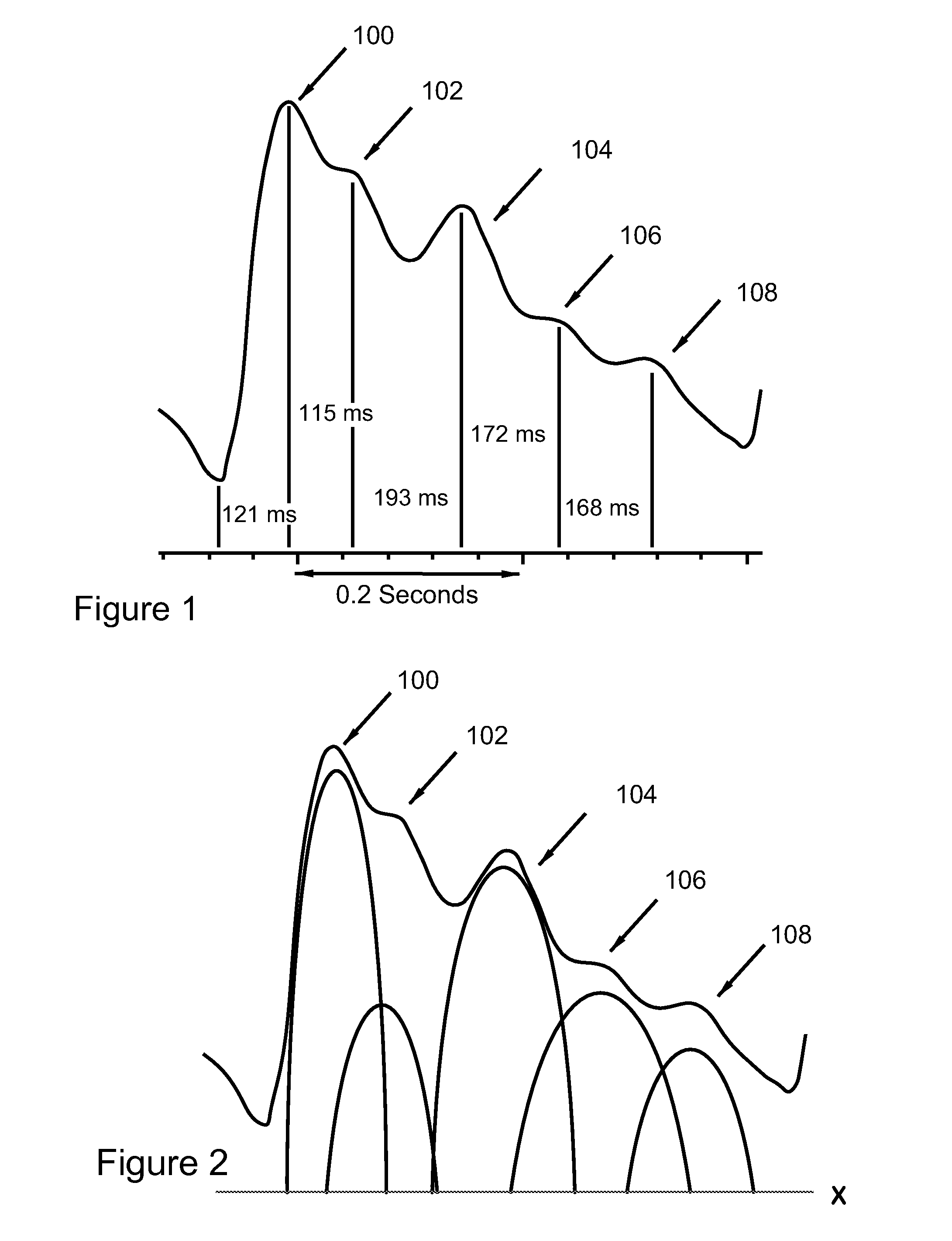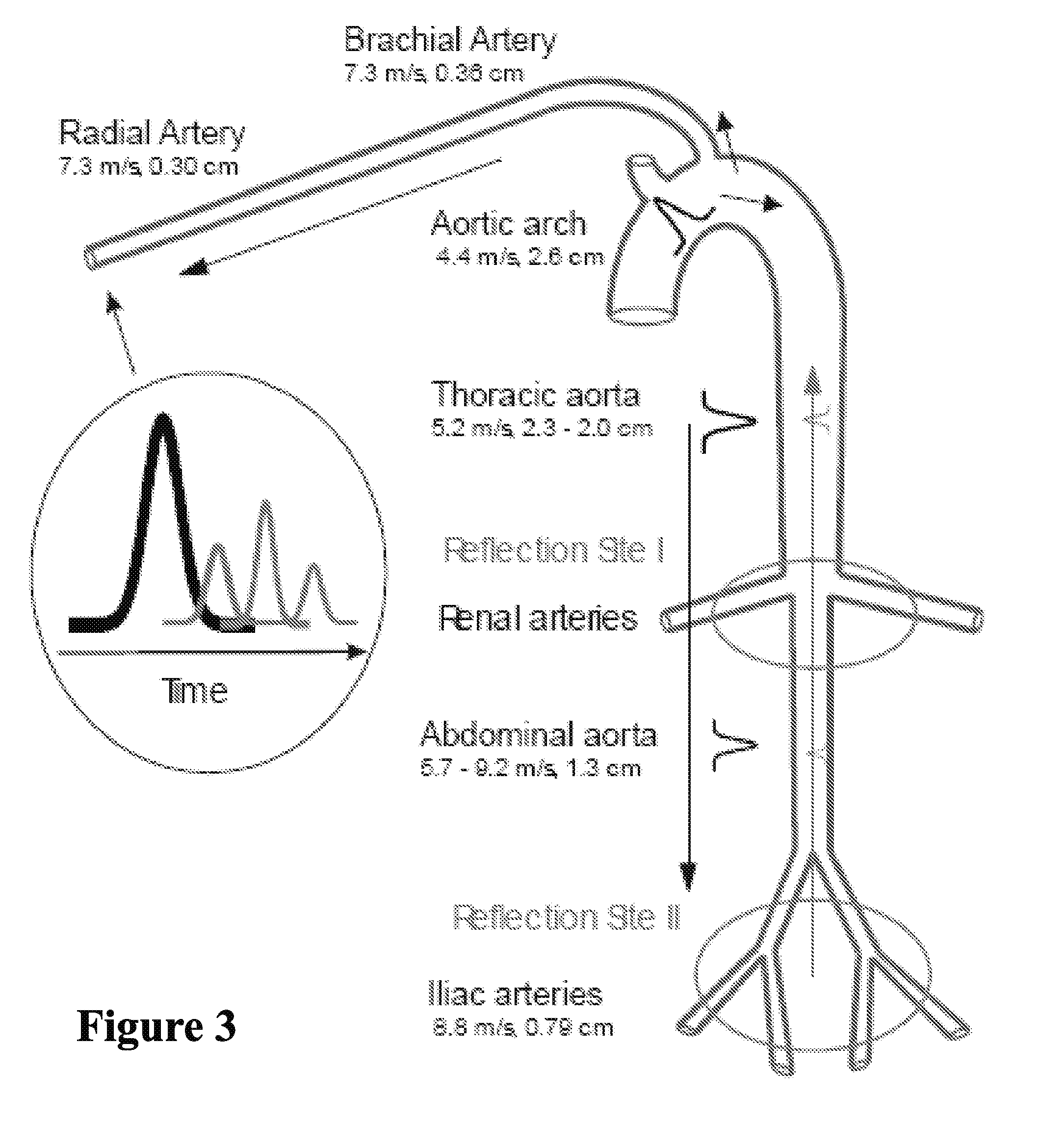Detection of progressive central hypovolemia
a technology of progressive central hypovolemia and blood volume, which is applied in the field of system for detection of abnormal decrease in blood volume, can solve the problems of continued re-calibration, disruption of signal, and limited commercially viable time-domain analysis approaches of arterial pulses, and achieves less complexity, less problems and disadvantages, and the effect of avoiding problems
- Summary
- Abstract
- Description
- Claims
- Application Information
AI Technical Summary
Benefits of technology
Problems solved by technology
Method used
Image
Examples
Embodiment Construction
Definitions
[0032]Where the definition of terms departs from the commonly used meaning of the term, applicant intends to utilize the definitions provided below, unless specifically indicated. For the purposes of the present invention, the term “plethysmograph” refers to an instrument that measures variations in the size of an organ or body part on the basis of the amount of blood passing through or present in the part.
[0033]For the purposes of the present invention, the term “horse race” refers to a contest of speed among horses that either are ridden by jockeys or pull sulkies and their drivers.
[0034]For the purposes of the present invention, the term “substantial” refers to an ample or considerable amount, quantity or size. Accordingly, the term “substantially comparable” as employed herein refers to data or information that can enables a diagnosis to be made based on a comparison of the patient's real time data to the substantially comparable data.
[0035]For the purposes of the pre...
PUM
 Login to View More
Login to View More Abstract
Description
Claims
Application Information
 Login to View More
Login to View More - R&D
- Intellectual Property
- Life Sciences
- Materials
- Tech Scout
- Unparalleled Data Quality
- Higher Quality Content
- 60% Fewer Hallucinations
Browse by: Latest US Patents, China's latest patents, Technical Efficacy Thesaurus, Application Domain, Technology Topic, Popular Technical Reports.
© 2025 PatSnap. All rights reserved.Legal|Privacy policy|Modern Slavery Act Transparency Statement|Sitemap|About US| Contact US: help@patsnap.com



